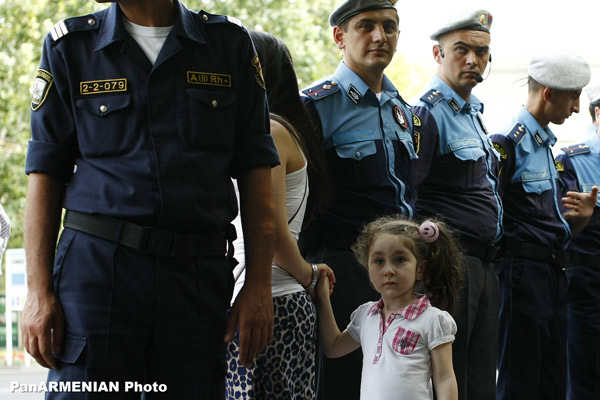In 1954, Martin Luther King, assuming the office of the priest of State of Alabama Montgomery City Baptist Church, headed the public movement against racial discrimination in transport. Nearly a year later, a public activist Rosa Parks refused to yield the bus seats to white passenger (so was demanded by the driver), for which she was arrested for “violating the public order.” In one of the most considered democratic states in the world, still 60 years ago, there was a law, according to which the first 4 rows of the bus were “for white,” and if they were occupied, then the black passengers in the remaining rows were obliged to yield their seat to white passengers. The incident with Rosa Parks became a stimulus that Montgomery conscious citizens boycotted all 380 days on all bus lines, organized various other events, demonstrations, marches and so forth.
The struggle was over with the fact that the United States Supreme Court has recognized the laws in Alabama anti-constitutional, despite the fierce resistance of racists.
The Governor of Alabama did not resign, no replacement of authorities on any level took place, but Martin Luther King recorded this, as well as many other successes. But their pledge, I think, was that the struggle was exclusively peaceful, not only physical but also any manifestation of spiritual violence was rejected (the slogan “whoever is not with us, is a villain” is an example of religious violence), as well as any party was refused. King was equally criticizing the two main US parties, and when it was found out that one of his allied is related to the Communist Party, he refused to cross the road with that person.
There is another important factor, both Martin Luther King and, let’s say, in the South African countries, the Archbishop Desmond Tutu of the Anglican Church, in the struggle against racial discrimination, in their activities were relying on religious beliefs and biblical truths. It is certainly not accidental; it requires certain inner conviction to lead and gather the public for the sake of good purposes, if you want a spiritual fire, which raises the religion of the people.
Read also
The social struggle in Armenia has no moral grounds formed based on our apostolic faith, and I explain it with the fact that many of our senior clergy have no faith in grams. Of course, they know prayers, masses, rites, and so on, but they do not have the fire in their hearts that leads the public to implement good purposes. They are just part of the government and do not yield to some of the authorities with their cynicism.
As for the representatives of the authorities and the cynicism of one of them, in response to his statement “if the government wants, it will blow down the movement in a night” (the matter is about the movement against the price rise of public transport), we can recall the words of the Gospel (Matthew 26), which Martin Luther King likes to cite “for all who draw the sword will die by the sword”.
Aram Abrahamyan
























































